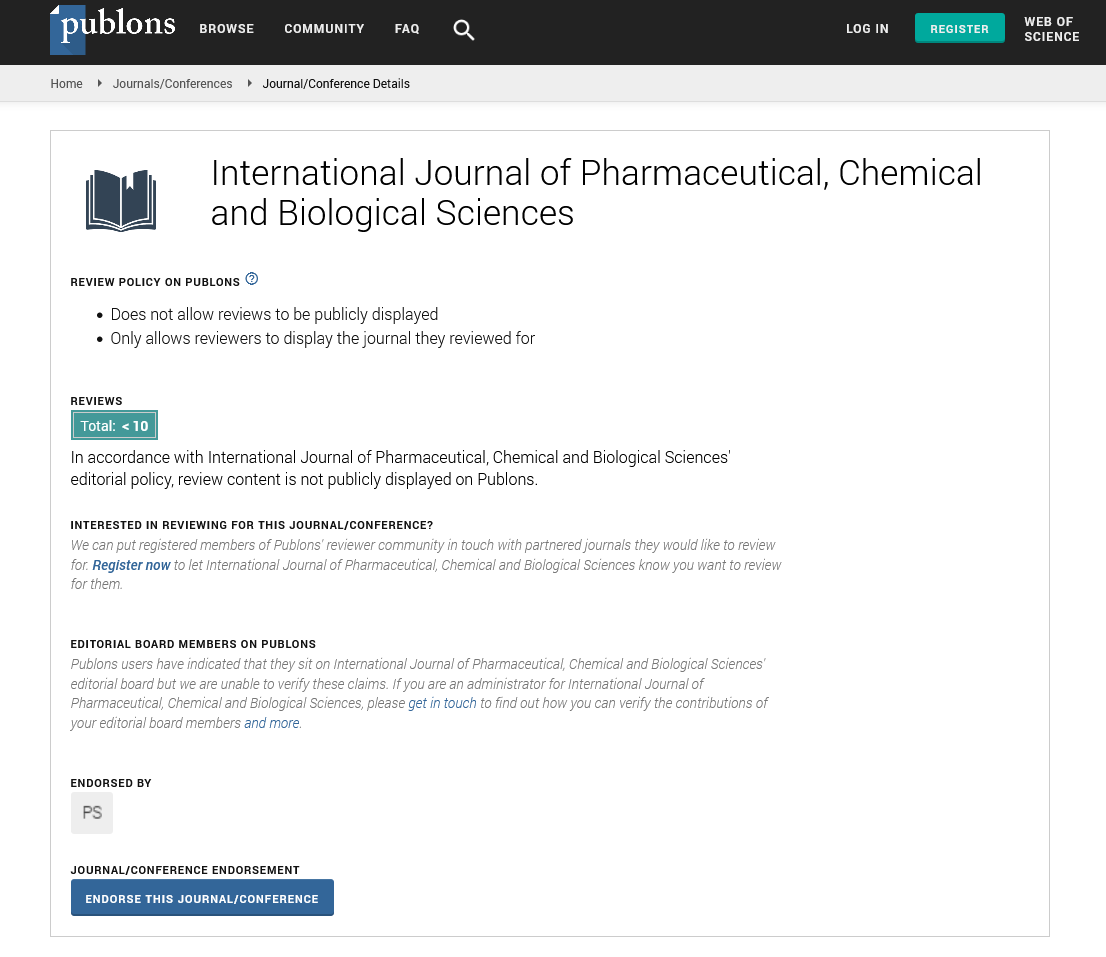Commentary - International Journal of Pharmaceutical, Chemical and Biological Sciences ( 2024) Volume 14, Issue 1
Unraveling the Complexities of Petroleum Chemistry: Navigating the Essence of the Modern World
Henry Williams*Henry Williams, Department of Chemistry, University of Columbia, USA,
Received: 28-Feb-2024, Manuscript No. ijpcbs-24-131346; Editor assigned: 01-Mar-2024, Pre QC No. ijpcbs-24-131346 (PQ); Reviewed: 15-Mar-2024, QC No. ijpcbs-24-131346; Revised: 20-Mar-2024, Manuscript No. ijpcbs-24-131346 (R); Published: 27-Mar-2024, DOI: DOI: 10.36648/2471-9668-14.1.6
Description
Petroleum chemistry stands as a cornerstone of modern civilization, driving the global economy, powering transportation, and serving as a vital feedstock for myriad industrial processes. Rooted in the organic chemistry of hydrocarbons, petroleum chemistry encompasses the exploration, extraction, refining, and utilization of crude oil and natural gas resources. In this comprehensive exploration, we delve into the intricate world of petroleum chemistry, elucidating its fundamental principles, processes, and profound impact on society and the environment. Petroleum, often referred to as “black gold,” is a complex mixture of hydrocarbons derived from ancient organic matter buried deep beneath the Earth’s surface. Crude oil, the raw material of the petroleum industry, is a complex mixture of hydrocarbons ranging from light, volatile compounds such as methane and ethane to heavy, viscous substances such as bitumen and tar. Crude oil also contains sulfur, nitrogen, and trace elements, which contribute to its chemical composition and properties. Natural gas consists predominantly of Methane (CH4) and smaller quantities of ethane, propane, and butane, along with trace amounts of other gases. Natural gas is often found in association with crude oil reservoirs and is extracted and processed for use as a clean-burning fuel and feedstock for chemical synthesis. Petrochemicals are chemical compounds derived from petroleum feedstocks through refining and chemical processing. Petrochemicals serve as building blocks for a wide range of products, including plastics, synthetic fibers, detergents, fertilizers, and pharmaceuticals, shaping modern lifestyles and industries. Petroleum products serve as vital energy sources and feedstocks for diverse industries, including transportation, manufacturing, agriculture, and construction. The combustion of petroleum fuels releases pollutants such as Carbon Dioxide (CO2), Nitrogen Oxides (NOx), Sulfur Dioxide (SO2), and Particulate Matter (PM), contributing to air pollution, smog formation, and climate change. Efforts to mitigate air pollution include the development of cleaner fuels, emission control technologies, and alternative energy sources. Petroleum spills and leaks can contaminate water bodies, soil, and groundwater, posing risks to ecosystems, aquatic life, and human health. Effective spill response, containment, and remediation measures are essential to minimize the environmental impact of petroleum releases. Transitioning to renewable energy sources, improving energy efficiency, and implementing Carbon Capture and Storage (CCS) technologies are critical strategies for mitigating the impact of petroleum utilization on climate change. Petroleum is a finite resource, and continued reliance on fossil fuels raises concerns about resource depletion and energy security. Transitioning to sustainable energy sources, such as renewable energy, biofuels, and hydrogen, is essential to reduce dependence on petroleum and ensure long-term energy sustainability. In conclusion, petroleum chemistry is a foundational discipline that underpins modern civilization, providing essential energy resources and feedstocks for diverse industries and applications. From exploration and extraction to refining and utilization, petroleum chemistry encompasses a vast array of processes and technologies that shape the global economy and way of life. However, the utilization of petroleum resources also presents environmental challenges and impacts, necessitating a balanced approach that prioritizes sustainability, innovation, and responsible stewardship of natural resources.
Acknowledgement
None.
Conflict Of Interest
None.

